Health workers are the front line in our defense against the coronavirus pandemic – including hundreds of Iranian Baha’i doctors and nurses. But they are not in Iran; instead, they live in countries around the world, treating their patients, where they are admired and praised by the people and governments of the countries where they live. The one country where they cannot do their work is Iran.
Many of these doctors and nurses – who studied and served in Iran – lost their jobs after the 1979 Islamic Revolution. They were expelled from the universities and their public sector jobs, barred from practicing medicine, jailed and tortured, and a considerable number of them perished on the gallows or in front of firing squads.
The crime of these Baha’i doctors, nurses and other health workers was their faith in a religion that the rulers of the Islamic Republic believe is a “deviant” faith.
In this series of articles, “For the Love of Their Country,” IranWire tells the stories of some of these Iranian Baha’i doctors and nurses.
Dr. Esmaeil Ghadirian was a pioneering malaria, parasitology and public health expert in Iran, educated both at Iranian universities and in France and Canada and a longstanding collaborator with the World Health Organization. He also helped establish the Baha’i Institute for Higher Education after the 1979 Islamic Revolution. The Islamic Republic expelled Dr. Ghadirian from the University of Tehran because of his beliefs.
If you know a Baha’i health worker and have a first-hand story of his or her life, let IranWire know.
***
Esmaeil Ghadirian was born in 1927 to a Baha'i family in the village of Sangesar (present-day Mahdishahr) in the county of Semnan. His father was a tradesman and a landed farmer. His mother, Shahrbanou, was born in 1896 and was one of the few women in the village who went to school and could read and write. Shahrbanou also established a private school for boys and girls in Sangesar – the first woman to do so.
Years later, a large number of Shahrbanou Ghadirian's students received degrees at Iranian and foreign universities; but they always remembered their first teacher in Sangesar.
Many Muslim and Baha'i families in the village sent their children to Shahrbanou Private School. As Shahrbanou and her school grew in popularity, religious fanatics became increasingly opposed to the school and finally complained to government officials. By order of the government, the school was closed and Shahrbanou was released after a day of detention. Shortly after her release, at the repeated request of residents to local officials, Shahrbanou reopened the school; but this time it was only for girls. The school continued to operate in Sangesar for many years and a large number of girls from Sangesar and its surroundings studied at the school.
Esmaeil completed his primary education at a public school in Sangesar. The village did not have a high school so he was sent to Sari to stay with his uncle to continue his education.
After receiving a diploma in veterinary medicine, he was accepted to the University of Tehran and graduated in 1954 with a doctorate. However, Dr. Esmaeil Ghadirian never practiced veterinary medicine and most of his medical and scientific services were in the field of parasitology and immunology.
In 1956, Dr. Ghadirian was hired as an assistant professor and researcher at the Institute of Parasitology and Malaria and, in addition to teaching, conducted extensive research on parasitic diseases.
A number of young doctors, including Esmaeil Ghadirian, selected by the Institute of Parasitology, underwent a full six-month course on malaria eradication under the auspices of the World Health Organization (WHO) and were sent to the southern regions of Iran to cooperate and participate in WHO research projects on parasitic diseases. This was the beginning of Dr. Esmaeil Ghadirian's collaboration with the WHO which lasted for decades.
National and International Activities
Dr. Ghadirian and his colleagues spent months working around the clock in Khuzestan province to find and treat malaria patients. The research produced by this group, on developing drugs and other ways to eradicate malaria, were even considered and used by the World Health Organization.
Dr. Ghadirian's scientific activities were not limited to Iran. In 1959, after completing a seven-month malaria eradication course under the auspices of the WHO in Belgrade, Yugoslavia, he was appointed by the organization to serve in the malaria eradication program in the Balkans and Yugoslavia.
In 1961, Dr. Ghadirian’s research was recognized by the Pasteur Institute of Paris; he was invited to undertake further research there, with a scholarship. Dr. Ghadirian returned to Iran after three years with a master's degree in mycology and immunology.
The course Dr. Ghadirian attended at the Pasteur Institute was called the "Grand Tour" and allowed students to study a range of specializations. Dr. Ghadirian passed various courses such as parasitology, mycology, immunology and chemistry, under the supervision of the institute’s professors.
Only two people in Iran had passed the Grand Tour in France at that point – one of whom was Dr. Ghadirian. With the approval of the Ministry of Health, professors who had completed the Grand Tour course were known as "laboratory science specialists" in Iran.
Dr. Ghadirian and Tehran's Faculty of Medicine
After returning from France, Dr. Ghadirian began teaching and researching at the Institute of Parasitology and Malaria in Tehran. In 1964, this institution was renamed the Institute of Parasitology and Tropical Health. Finally, in 1965, adding a new health seat to the courses of medical parasitology and tropical diseases and merging the above three groups, the Department of Health Sciences under the Faculty of Medicine of the University of Tehran was established. Dr. Ghadirian, as an associate professor and researcher, continued his scientific activities at this center.
In 1966, Dr. Esmaeil Ghadirian received a scholarship from the University of Tehran to continue his education and research at the Faculty of Science of the Sorbonne University of France. He received a PhD in parasitology from the Sorbonne after two years.
He was invited to work with the Sorbonne after completing his studies. But he rejected the offer because he believed that he had been educated with the funds of the Iranian people and that he should return to Iran to serve that land.
Dr. Ghadirian once again went home and began teaching as a full professor in the faculties of Pharmacy, Medicine and Public Health at the University of Tehran. During the years 1974 to 1976, Professor Ghadirian went to Canada on sabbatical provided by the university to doctoral graduates.
Dr. Ghadirian began his latest research at the age of 47 at the University of Montreal. He soon joined the Department of Microbiology, Immunology and Parasitology at the McGill University School of Medicine and pursued his research and scientific activities. He returned to Iran on the eve of his fiftieth birthday.
After returning to Iran, he continued his teaching and research work as the director of the Department of Parasitology and Mycology at the Faculty of Public Health at the University of Tehran. The knowledge he had gained abroad, as well as the new medical equipment he had brought with him from Canada, and his own great enthusiasm and energy to teach what he had learned, promised a bright future in the field of parasitology at the University of Tehran. But the storm of the Islamic Revolution destroyed those hopes and achievements.
Revolution and Expulsion
After the 1979 Islamic Revolution, Dr. Esmaeil Ghadirian, who refused to renounce his religious beliefs as a Baha’i, was expelled after years of scientific service at the University of Tehran because of his faith.
Dr. Ghadirian's colleagues at the university tried to prevent his expulsion or to at least secure his retirement – his prominence and capacity as a scientist meant they did not want to lose him by expulsion. But the Supreme Council of the Cultural Revolution did not consent; finally, Dr. Ghadirian was fired from the University of Tehran after 25 years of teaching and research. During this 25-year period, 44 articles by Dr. Esmaeil Ghadirian were published in prestigious scientific and medical journals. He was also twice recognized as an outstanding researcher and had received awards.
In 1985, Dr. Ghadirian, at the invitation of an old university colleague, started working as the head of the immunology department of the private (non-governmental) Central Pathobiology Laboratory. During this time, he performed at least 20 new tests that had not been performed in Iran before. After 25 years of working in the laboratory, finally in 2010, Professor Esmaeil Ghadirian, retired on his social security pension.
Dr. Ghadirian's relationship with the World Health Organization continued for many years after he was expelled from the University of Tehran. During this time, after the Revolution, Dr. Ghadirian was officially introduced to Iran’s Ministry of Health as a WHO consultant. The Iranian government initially welcomed the collaboration and he was due to be sent to Afghanistan as an expert; but later, when the authorities realized that Dr. Ghadirian was a Baha’i and had previously been expelled from the University of Tehran for that reason, they severed ties with him.
In 1987, several expelled Baha'i professors founded the Baha'i Institute for Higher Education (BIHE) in Iran to educate Baha’i youth who were denied access to university. Professor Ghadirian was among them. He taught various medical sciences at BIHE for nearly three decades. Thanks to the efforts of professors such as Professor Ghadirian and his wife, Fereshteh Darougar, BIHE graduates are now recognized by 113 universities around the world.
Personal Life and Death
Esmaeil Ghadirian was not raised in a wealthy family and his savings in life were the result of years of research and teaching. Although he was considered a world-renowned scientist and researcher in the fields of parasitology and immunology, he was a down-to-earth person, and the simplicity of his life was widely known.
During the years that Dr. Ghadirian was engaged in scientific research and teaching, his constant companion was Fereshteh Darougar, his wife. Fereshteh Darougar was one of Dr. Ghadirian's students in the Faculty of Health and the two married in 1965.
Fereshteh Darougar held a bachelor's degree from the School of Health and a master's degree in microbiology from McGill University in Canada. She returned to Iran after graduation and taught at the School of Public Health. After the Islamic Revolution and during the Cultural Revolution, when all Baha'i professors were expelled from Iranian universities, Fereshteh Darougar was also barred from teaching and was expelled.
Dr. Esmaeil Ghadirian's only child lived and practiced in Canada, meaning that he and his wife also resided in Canada, he loved Iran and did not leave his homeland until the last moment of his life. He died on September 7, 2018 after a long period, due to diabetes.
Even though the government of the Islamic Republic tried to erase the works and memory of Dr. Ghadirian by expelling him, hundreds of his students praised him by sending letters of condolence to his wife and expressing their regret on social media.
Read other articles in this series:
The Tragedy of a Baha’i Hospital Confiscated by the Islamic Revolution
The Baha’i Doctor Murdered by Muslim Vigilantes in 1950
The Baha'i Doctor Tortured and Killed after Eradicating Malaria in Hamedan
The Doctor With the Unforgettable Smile
A Devoted Pediatrics Pioneer Working in Dangerous Times
The Doctor Who Treated his Prison Guards
From Poverty to Medicine to Execution for Being a Baha'i
visit the accountability section
In this section of Iran Wire, you can contact the officials and launch your campaign for various problems




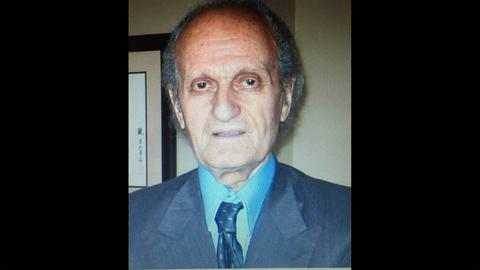



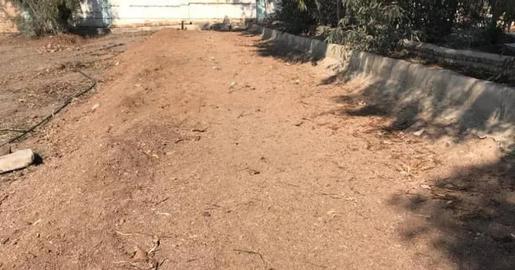
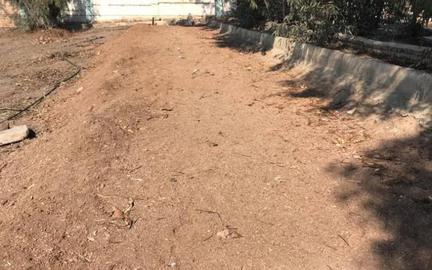

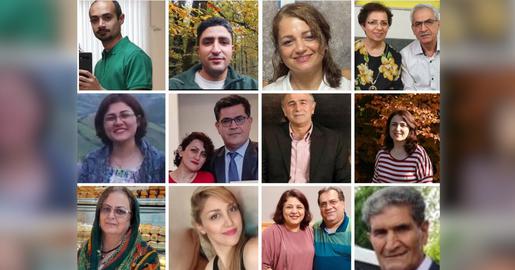
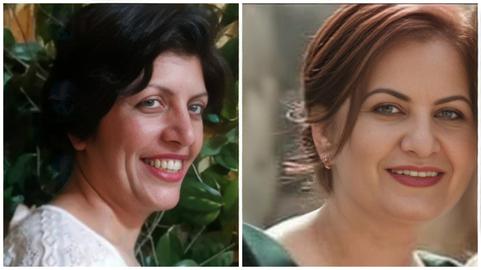

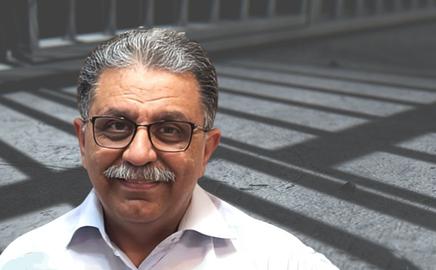

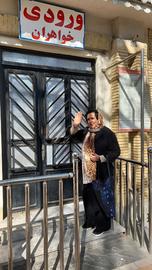
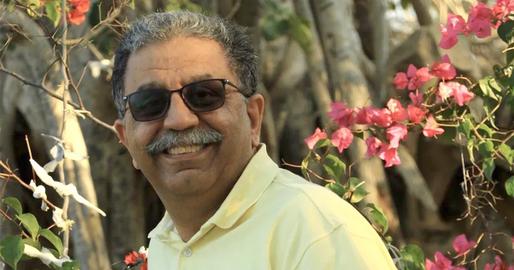



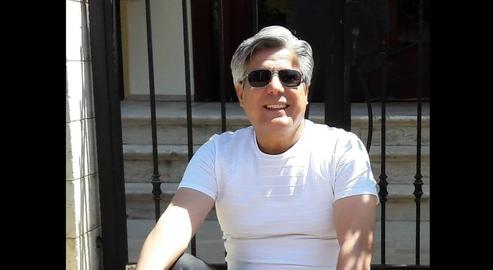
comments